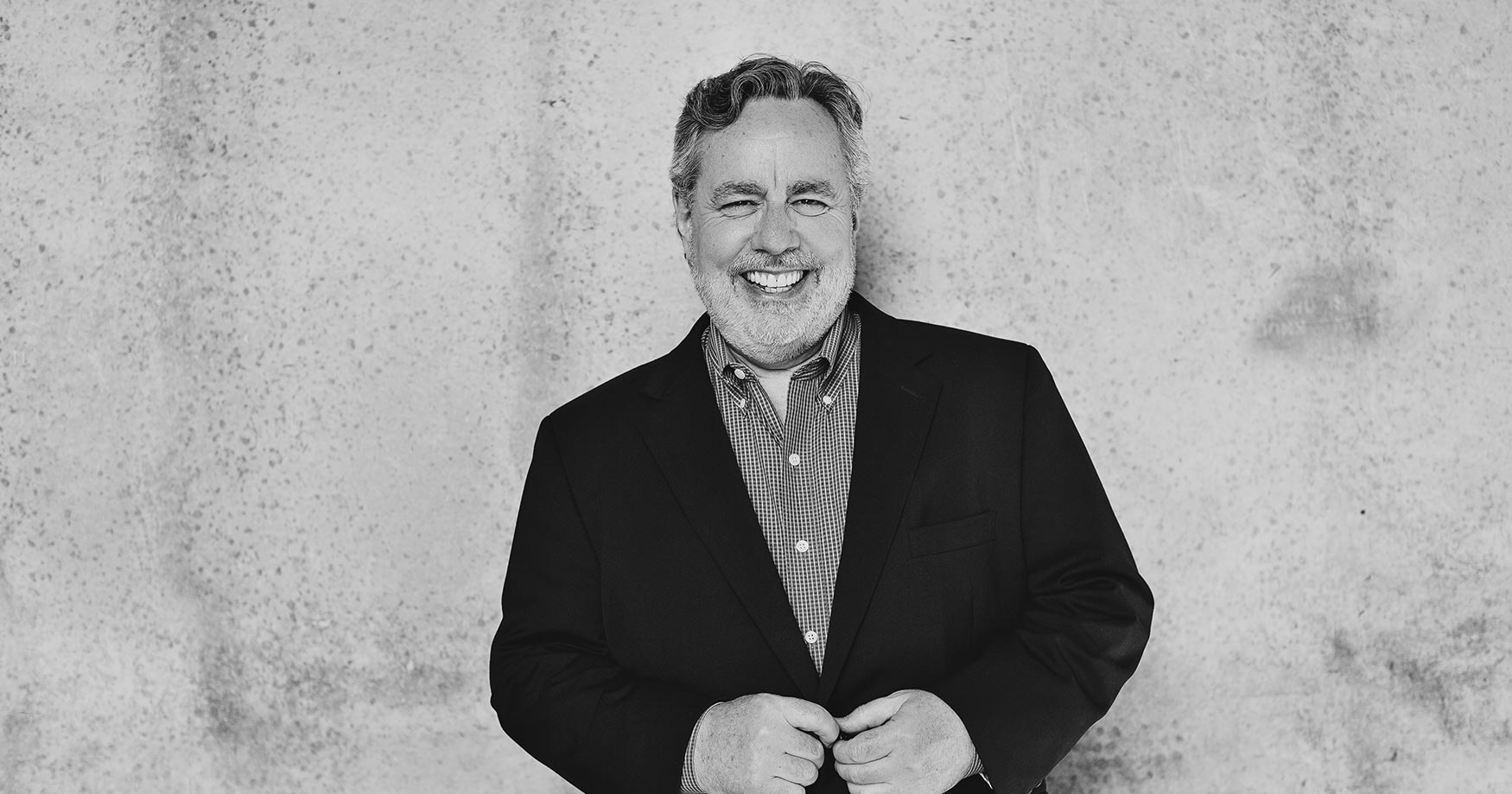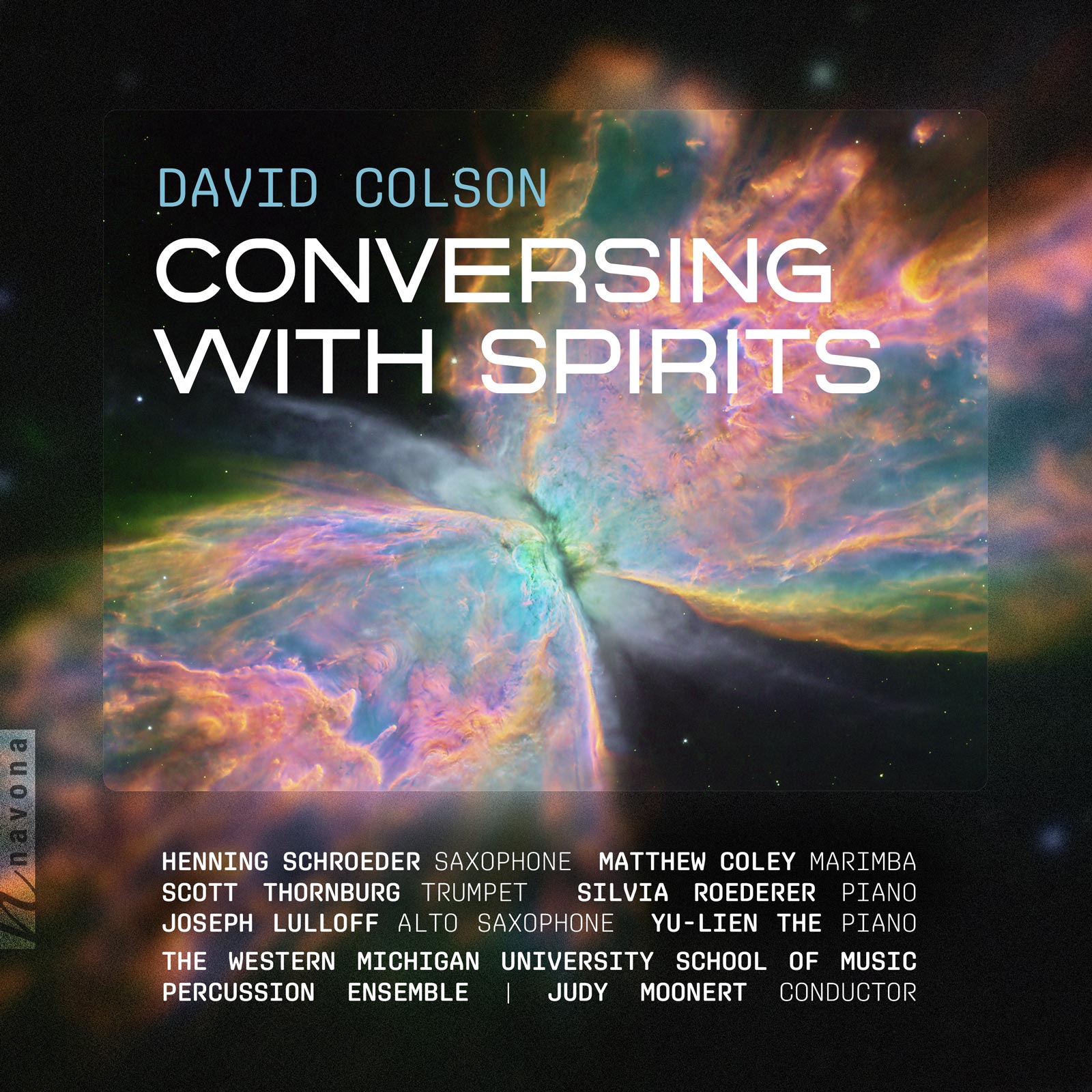Viewed by composer David Colson as both a GPS and a scrapbook of memories, CONVERSING WITH SPIRITS presents innovative stories and sounds, including bari sax and marimba, trumpet duo, marimba solo, saxophone and piano pieces, and a lively work with the WMU Percussion Ensemble.
Today, David is our featured artist in “The Inside Story,” a blog series exploring the inner workings and personalities of our composers and performers. Read on to learn about his musical beginnings on the piano, and the words offered to him by William Bolcom that still resonate today…
Tell us about your first performance.
My first performance was back in high school while attending the Interlochen Arts Academy. It was a work for small percussion ensemble. As a percussionist I understood those instruments the best and so that’s why I chose to write for this ensemble. As I recall it was mostly a piece filled with a collection of sound effects — one of my classmates remarked that it sounded like a film score, which at the time I didn’t find so complimentary. The performance was put together with a small number of rehearsals — I was conducting the composition and was very nervous about making it to the end without falling apart — we managed to finish just fine. It was exciting to create something and have it performed live — I still feel that same thrill with performances today.
If you weren’t a musician, what would you be doing?
I think I might have pursued a career as an architect. I would still be in a creative field making things. Even in music I imagine a structure while layering the emotional content upon the scaffolding; as an architect you would consider many of the same components as building a musical composition — from space, to proportions and balance, to its placement, etc. Early in my career I considered other options besides music — I found I was too attached to all the things I did in music and ultimately couldn’t imagine myself doing anything else.
How have your influences changed as you grow as a musician?
I started out my musical studies as a performer and over time started to compose more regularly. In the beginning I was influenced by the orchestral world since I was intent on playing in a professional orchestra. Eventually I grew tired of that pursuit and became much more interested in chamber music. Chamber music was so much more personal and expressive — as a music chamber musician you had more of a hand in the music-making, I believed. As a composer, I still feel that influence and would much prefer to write for smaller ensembles.
As a composer in my early years, I was attracted to the trends and latest fades in contemporary music. As I’ve grown, I’ve returned to the classics and music by older, more experienced composers. While style has changed over the centuries, there’s a lot to be said for the craft of the traditional repertory, even from the 20th and 21st century masters.
What were your first musical experiences?
My first musical experiences were studying the piano from about the time I was 7 years old. I studied with a neighbor woman who gave piano lessons on the side. She was a very patient teacher. I practiced most days with my mother looking over my shoulder and deciding how many repetitions I would do to make it sound better or more correct. My piano teacher discovered early on that I was attracted to more modern music and so there was a regular diet of Debussy and Bartok. Eventually I was playing music by then living composers such as Ross Lee Finney and Dmitri Shostakovich — I found that to be exciting and inspiring. It made me feel connected to the world. I would eventually meet Ross Lee Finney and still feel a strong tie to his music. So that first musical experience of studying piano with the woman next door was very impactful for me.
Where and when are you at your most creative?
I’m most comfortable with creating music in my home studio, and usually when I’m relaxed. I try to compose most days, so I prepare by clearing my schedule and my head so I’m with fewer distractions. I like composing in the middle of the day and putting in the hours before it gets too late. This has changed over the years. When I was younger, I would write into the early morning hours. I like my sleep now and I teach in the early part of the day. Summers are of course delightful, and when I’m not teaching, I appreciate composing in the morning hours.
What musical mentor had the greatest impact on your artistic journey? Is there any wisdom they’ve imparted onto you that still resonates today?
There have been many musical mentors over the years. It’s hard to single out just one. The person that comes to mind is William Bolcom — I studied with him for a short time but there are numerous things he said to me that still resonate. He really pushed me to become more skilled at counterpoint, so many of our lessons were focused on this topic. We’d talk about the value of contrary motion and I still come back to that in my own music. He is a great orchestrator and could cite many examples of musical scoring which I still consider today.
Bolcom really prioritized his art throughout his life and that always takes commitment — I regularly commit myself to this principle. He would tell me, “you need ego, but not too much.” I still think about that.
Explore David Colson’s Latest Release
CONVERSING WITH SPIRITS
CONVERSING WITH SPIRITS is available now from Navona Records. Click here to visit the catalog page and explore this album.
The views and opinions expressed in this post are those of the artist and do not necessarily represent or reflect the views and opinions held by PARMA Recordings LLC and its label imprints, subsidiaries, and affiliates.




